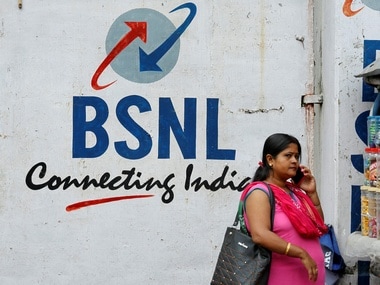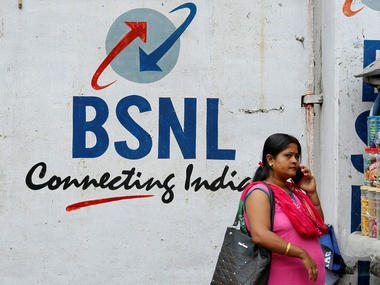A Rs 13,000-crore bailout package for the ailing public sector telecom company Bharat Sanchar Nigam Ltd (BSNL) is being mulled. Air India is being kept afloat for reasons of prestige—it has been our national carrier! Such cloying sentimentality has no place in business. Likewise BSNL perhaps, too, is being preserved for extraneous reasons thereby allowing its wounds to fester. East West Airlines became the first national level private airline in 1990 to operate in the country after 37 years, after the government decided to end Indian Airlines’ monopoly over domestic civil aviation. Opening up of the skies was the right time to privatise Air India. For a variety of reasons, including cloying sentimentality, this was not done. When competitors are itching to make an entry, that is the right time to privatise a non-performing public sector unit (PSU). In the world of business, inorganic growth is preferred to organic if especially one can take off the ground quickly. Likewise, the Bharat Sanchar Nigam Ltd (BSNL) should have been given the quietus when the telecom sector was thrown open to private participation in the second half of the nineties. The Vajpayee government was the first to take privatisation seriously. But it started with a low hanging fruit. The government sold its 51 percent stake in Bharat Aluminium Company Ltd (BALCO) to Sterilite Industries Ltd in 2001. Arun Shourie was in the NDA government led by Vajpayee to be anointed as the disinvestment minister, raising visions of furious and frenetic privatisation activity. BSNL and Air India were ideal candidates for privatisation but they remained untouched. The Manmohan Singh government that ruled between 2004 and 2014 didn’t have the stomach to make paradigm changes like privatisation, dependent as it was on Communists’ support in its first term. [caption id=“attachment_4024059” align=“alignleft” width=“380”]  Representational image. Reuters.[/caption] The Narendra Modi government hasn’t done much either on the privatisation front mainly due to the touching faith in the Gujarat model. Prime Minister Modi seems to have made Gujarat Narmada Valley Fertilizers Company (GNFC) the template for revival of ailing central government public sector companies. Thus we have reports that for the struggling-to-remain-afloat state-owned Bharat Sanchar Nigam Ltd, the Department of Telecommunications (DoT) is considering a bailout package worth over Rs 13,000 crore. The proposal includes a Rs 6365 crore voluntary retirement package and 4G spectrum allotment through Rs 6,767 crore equity infusion and monetisation of real estate assets. Yet another instance of throwing good money after bad. “The banks are now reluctant to even give short term loans to BSNL. The company’s total loss in FY’19 is likely to be Rs 7,000 crore, including Rs 4,000 crore operational loss due to depreciation,” a company official said on condition of anonymity. BSNL has not paid salaries to its employees in the last two months, a first in the company’s 18-year long history. The company’s current debt stands at Rs 13,000 crore, while the overall debt of the telecom sector stands at Rs 6.1 trillion testifying to the fact that apart from the legendary intrinsic inefficiency of a PSU, BSNL is also feeling the heat of dog-eat-dog competition being witnessed in the telecom sector. Consequently, even the nimble-footed among them have been mauled. But BSNL has been a laggard. Its market share has been steadily shrinking. Reliance Jio Infocomm Ltd with a subscriber base of 26.27 crore has leapt ahead of everyone in the business -–Airtel (10.13 crore), Vodafone Idea (10.13 crore), BSNL (2.03 crore) and Tata Tele Group (25 lakh). When Vodafone and Idea merged, it was a sagacious decision taken to take on the threat posed by Reliance Jio. Alas if only the central government too had seen the writing on the wall and quickly initiated rearguard action to privatise BSNL. Instead what it is doing is an encore of Air India. With the model code of conduct kicking in, the central government cannot do anything significant on the policy front till the new government is formed after results are announced on 23 May 2019. A lot however could have been done in the five years of the Modi government on the privatisation front. This is one area of passivity that could be described as the most significant misses of the Narendra Modi government. One swallow does not make a summer. Thus GNFC’s revival should not have been touted as the Gujarat model for revival of sick PSUs with the central government. BSNL and Air India are in sectors that are witnessing furious competition that are not witnessed in the fertilizers sector. (The author is a senior columnist and tweets @smurlidharan) Disclaimer: Reliance Industries Ltd. is the sole beneficiary of Independent Media Trust which controls Network18 Media & Investments Ltd which publishes Firstpost
DoT is considering a Rs 13,000-crore bailout plan for state-owned Bharat Sanchar Nigam Ltd (BSNL)
Advertisement
End of Article


)

)
)
)
)
)
)
)
)



